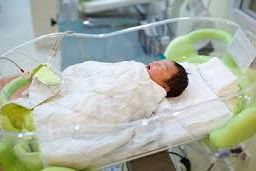
Maternity Leave St Lucia: Rights and Benefits Explained
Maternity leave in St. Lucia is a fundamental right governed by the Labor Act, providing essential support for working mothers during this transformative phase. Explore the duration, benefits, and economic implications of maternity leave, emphasizing the commitment to the well-being of both mothers and their newborns in this Caribbean nation.

Maternity leave is a crucial aspect of ensuring the well-being of working mothers and their newborns. In St. Lucia, the government has recognized the importance of providing adequate support to new mothers during this significant phase of their lives. This post aims to explore the maternity leave policies in St. Lucia, including the duration of leave, benefits provided, and the impact on working mothers and the economy.
Maternity Leave Duration and Eligibility
In St. Lucia, maternity leave is governed by the Labor Act, which provides provisions for the protection of pregnant employees. According to the law, women are entitled to a minimum of 12 weeks of maternity leave. This period includes six weeks before the expected date of delivery and six weeks after childbirth, or earlier if there is a health risk to the mother or child. However, this may vary depending on the circumstances, so it is advisable to check the specific regulations or consult with your employer.
However, it is important to note that to be eligible for maternity leave benefits, an employee must have been continuously employed for at least 12 months with the same employer. Additionally, the employee must have worked for at least 150 days during the 12-month period preceding the expected date of delivery. An employee who meets these conditions is entitled to take maternity leave.

Maternity Leave Benefits
During maternity leave, eligible employees are entitled to receive maternity benefits. These benefits are paid by the National Insurance Corporation (NIC) and are equivalent to two-thirds of the employee’s average weekly earnings. The NIC pays these benefits for a maximum period of 13 weeks.
To apply for maternity benefits, employees must submit a medical certificate confirming pregnancy and expected date of delivery, along with other required documentation, to the NIC. The NIC processes these applications promptly, ensuring that eligible employees receive their benefits in a timely manner.
Pay during Maternity Leave
During maternity leave, employees may be entitled to receive maternity benefits, which are usually a percentage of their regular salary. The amount and duration of maternity benefits can vary depending on the employment contract, industry, and length of service. It is advisable to review the employment contract or consult with the employer to understand the specific benefits and payment arrangements.
Impact on Working Mothers
The provision of maternity leave in St. Lucia has a significant impact on working mothers. It allows them to take the necessary time off to recover from childbirth, bond with their newborns, and adjust to the demands of motherhood. The 12-week duration of maternity leave provides a reasonable period for mothers to physically and emotionally recuperate, reducing the risk of postpartum health issues.
Moreover, maternity leave enables working mothers to establish breastfeeding routines, which is crucial for the health and development of their infants. The uninterrupted time spent with their newborns during this period also fosters a strong parent-child bond, contributing to the overall well-being of both mother and child.

Return to Work
After the maternity leave period, employees have the right to return to their previous position or a comparable position without losing any employment benefits or seniority. This is generally protected by law.
Leave in Case of Illness or Complications
If an employee is unable to return to work on the notified day of return due to disease or physical or mental disablement arising from or connected to her pregnancy or newborn child, she may postpone her return for a total period of up to 60 days without pay. A medical certificate from a practitioner is required to support this.

Economic Implications
While maternity leave is primarily focused on supporting working mothers, it also has positive economic implications. By providing paid maternity leave, St. Lucia promotes gender equality in the workforce and encourages women’s participation in the labor market. This, in turn, contributes to the country’s economic growth and development.
Paid maternity leave allows women to maintain their employment and career progression, reducing the risk of job loss or career setbacks due to childbirth. It also helps employers retain experienced and skilled female employees, minimizing recruitment and training costs associated with high turnover rates.
Furthermore, maternity leave policies that support working mothers contribute to a more inclusive and family-friendly work environment. This can enhance employee morale, productivity, and loyalty, ultimately benefiting businesses and the economy as a whole.
Cash Benefits
Maternity leave benefits are provided by the National Insurance Corporation. The duration of maternity leave benefits is three months. The amount of the benefit is 65% of the employee’s average earnings.
Health Protection
After being notified of an employee’s pregnancy, the employer is required to adapt the working conditions to ensure the employee is not exposed to hazardous chemicals, substances, or conditions that may affect her health or the health of the unborn child. If alternative work is available that does not involve such exposure, it should be assigned to the employee during pregnancy, with the right to return to the previous work after childbirth.

Maternity leave in St. Lucia plays a vital role in supporting working mothers and ensuring the well-being of their newborns. The 12-week duration, along with the provision of maternity benefits, allows mothers to recover from childbirth, establish breastfeeding routines, and bond with their infants. Moreover, these policies have positive economic implications by promoting gender equality in the workforce and fostering a family-friendly work environment. By recognizing the importance of maternity leave, St. Lucia demonstrates its commitment to supporting working mothers and creating a more inclusive society.
Please note that the above information is based on general guidelines and may not cover every situation. It is recommended to consult the Labour Code, the National Insurance Corporation, or relevant government sources for further information regarding maternity leave rights and entitlements.
















